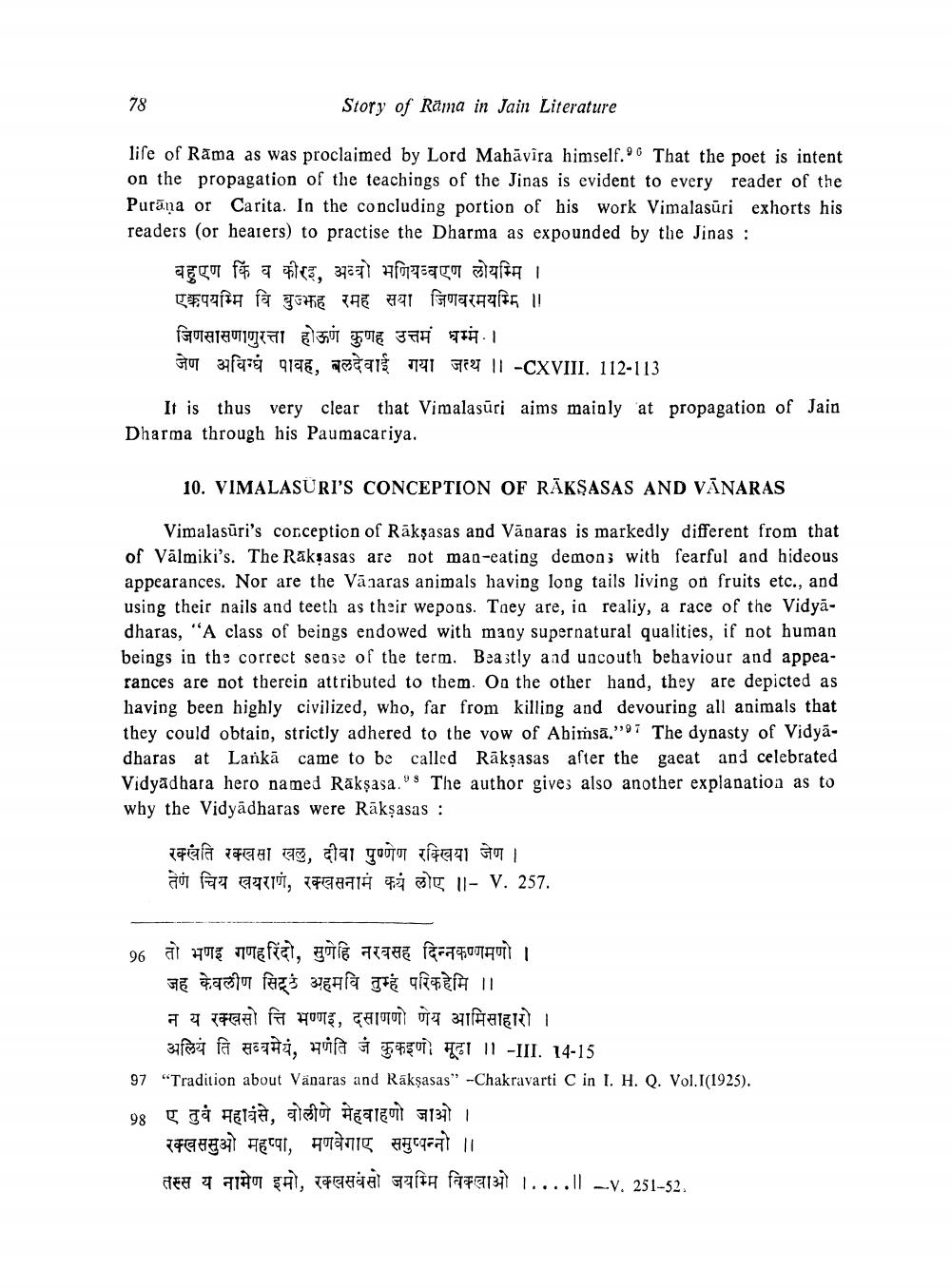________________
Story of Rama in Jain Literature
life of Rama as was proclaimed by Lord Mahavira himself. That the poet is intent on the propagation of the teachings of the Jinas is evident to every reader of the Purana or Carita. In the concluding portion of his work Vimalasuri exhorts his readers (or heaters) to practise the Dharma as expounded by the Jinas:
78
बहुए किं व फीरड़, अच्यो भणियम्वरण लोयम्मि । एकपयामि विभाह रमह सवा जिणवरमयमि ॥ जिणसासणागुरता होऊांग कुणह उत्तमं धम्मं । जेण अविग्यं पावह, बलदेवाई गया जस्थ ||
CXVIII 112-113
It is thus very clear that Vimalasüri aims mainly at propagation of Jain Dharma through his Paumacariya.
10. VIMALASURI'S CONCEPTION OF RAKSASAS AND VANARAS
Vimalasûri's conception of Raksasas and Vanaras is markedly different from that of Valmiki's. The Raksasas are not man-cating demons with fearful and hideous appearances. Nor are the Vanaras animals having long tails living on fruits etc., and using their nails and teeth as their wepons. They are, in realiy, a race of the Vidyadharas, "A class of beings endowed with many supernatural qualities, if not human. beings in the correct sense of the term. Beastly and uncouth behaviour and appearances are not therein attributed to them. On the other hand, they are depicted as having been highly civilized, who, far from killing and devouring all animals that they could obtain, strictly adhered to the vow of Ahimsa." dharas at Lanka came to be called Rākṣasas after the Vidyadhara hero named Raksasa." The author gives also another explanation as to why the Vidyadharas were Rākṣasus:
The dynasty of Vidyagaeat and celebrated
रक्त रक्खसा खलु दीवा पुष्णेण रक्खिया जेग । ते चिय खयराणं, रक्खसनामं कथं लोए ॥ - V. 257.
96 तो भणइ गणहरिंदो, सुणेहि नरवसह दिन्नकण्णमणो । जह केवलीण सिहं अहमवि तुम्हें परिकहेमि ॥
न य रक्खसो त्ति भण्णइ, दसाणणो णेय आमिसाहारो ।
अयि ति सत्यमेयं भर्गति जे कुकइणो मूढा 11 111. 14-15
97 "Tradition about Vanaras and Rākṣasas" -Chakravarti C in I. H. Q. Vol.I(1925).
98 ए तु महावंसे, बोलणे मेहवाहणो जाओ ।
रक्खससुओ महया, मणवेगाए समुध्यन्तो ||
तरस य नामेण इमो, रक्खसवंसो जयभिम विक्खाओ | V. 251-52.




